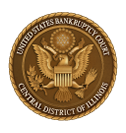Section 507(a)(8)(A)(i).
Debtors filed serial Chapter 13 cases, fully paying the IRS’s allowed claim for assessed income taxes plus prepetition interest in the earlier case. In the later case, the IRS filed a claim for the additional interest that accrued after the petition in the earlier case, which the IRS asserted was not discharged in the earlier case and must be treated as a priority claim in the later case. The Court rejected the IRS’ argument, determining that under the plain meaning of sec. 507(a)(8)(A)(i), the claim was not entitled to priority status since the IRS was not stayed from collecting the additional interest once the Chapter 13 Plan was confirmed and estate property vested in the Debtors.
